|
We use cookies to enhance your visit to our site. Read our Privacy and Cookies policies to find out more. Close |
|||
Ownership HNA’s Hilton buy alters ownership landscape in Europe 07 NOVEMBER 2016 9:32 AM As Chinese capital seeks to flex its muscles—most recently with HNA’s deals with Carlson Hospitality and Hilton Worldwide—shareholders of smaller companies feel squeezed amid massive ownership interests. |
By Terence Baker
tbaker@hotelnewsnow.com
@terencebakerhnn
GLOBAL REPORT—Hong Kong-based HNA Group’s 25%, $6.5-billion buy of Hilton Worldwide Holdings will affect more than just the bottom line for both companies. In fact, the deal already is causing ramifications for HNA’s previous acquisitions of European assets, sources said.
Christophe De Bruyn, director of tourism and leisure at Barcelona-based Indra Business Consulting, said the
HNA acquisition is an example of how Chinese capital has sought to play an important role in the entire tourism value chain. Other examples, he said, include HNA’s 10% stake in French leisure group Pierre & Vacances and its continuing talks with Spanish airline, tour operator and hospitality firm Air Europa, as well as Fosun’s 93% stake in Club Me?diterrane?e and 5% stake in Thomas Cook.
AddedtotheHNAmixareitspartialownershipofNHHotelsandpending fullownershipofCarlsonHospitalityGroup.The muscle of those two companies, plus Hilton, gives HNA C-suite influence over approximately 995,000 rooms in 25 brands and 6,500 hotels.
HNA’s ownership stakes in the three Western hospitality companies now include or will soon comprise 100% of Rezidor, 28.5% of NH and 25% of Hilton. That influence could very well increase, because Carlson also owns 51.3% of Carlson Rezidor Hotel Group—its European, Middle Eastern and Africa hotel operations division—and because under Swedish law (Rezidor is publicly listed in the Scandinavian country) the remaining 48.7% has to be made available under a mandatory public tender offer.
“Their objectives are usually several at the same time: Grow their business out of China, diversify their investments and risks, become global players, and bring and adapt the best tourism and hospitality know-how to the growing Chinese and Asian market,” De Bruyn said.
Philippe Doizelet, managing partner for France at business consultancy Horwath HTL, said HNA continues to build its status in the industry.
“HNA is a conglomerate with a very vertical structure,” Doizelet said. “Hotels allow them to master downstream buyers and capitalize on synergies.”
HNA’s relationship with NH
Some stockholders at NH Hotels see HNA’s ownership of Carlson as a conflict of interest in its part-ownership of NH.
Pressure from those stockholders forced out former CEO Federico Gonza?lez Tejera and four HNA-nominated NH board members. In September, HNA published an open letter asking for their return and referring to two major NH shareholder blocks as a “cabal.”
De Bruyn said he doesn’t believe HNA’s 100% buy of Carlson Hospitality will generate greater competition for NH, because competition now is more global and has more players.
“In terms of strategic decisions, it is true that the independence of board members cannot be guaranteed if they are part of the same group present in two competing companies, though their goal will always be to make both companies profitable and avoid cannibalization,” he said. “Special surveillance over potential conflicts of interest is needed.”
De Bruyn said he understands why some NH shareholders might feel vulnerable. The battle to control NH, he noted, started with friction between hotel company Hesperia—which owns 9% of NH—and NH’s original shareholders, then escalated with the emergence of investment fund Oceanwood, which owns 11%.
“The HNA-NH conflict that took place in May this year seems to be one more episode,” De Bruyn said, adding that NH is a strong operational entity.
“Regarding the share value of NH, immediately after that conflict and the board decision to dismiss the four HNA board members, NH value went up and then down to stabilize,” he said. In fact, the share value has been shown to be “more linked to company operational and financial results than to these battles,” he added, and “the recent announcement NH is back to profit is much more influential to the share value.”
Doizelet said he, too, understands NH shareholder concerns. He also believed NH eventually would be sold off, as Western companies became entangled in Chinese capital looking further to expand its weight.
Thibaud Andre?, senior consultant and marketing manager of Beijing-based Daxue Consulting, which specializes in the Chinese market, said the NH squabble might be a Chinese firm’s first push back in the hospitality arena boardroom.
On 2 November, HNA sent a second letter to NH shareholders demanding changes in NH’s current board.
All together now…
Analysts recently told HNN that the HNA-Hilton deal could push other major brand companies to explore their own alliance opportunities to penetrate into markets where they don’t have as strong a presence.
Legitimacy is the key characteristic Chinese money buys, Doizelet said.
“What validates HNA, when you look at the portfolios of a Chinese company, is that their brands are poorly or not as clearly
positioned as are Western brands. They’re not as desirable,” he said. “But by purchasing minority shares, China is showing momentum as a country on the move, as perfectly acceptable to them at the moment are low returns in return for security and low risk.”
Doizelet mentioned that Shanghai Jin Jiang International Hotels owns Louvre Hotels Group and has a large stake in fellow French firm AccorHotels.
Bill Scanlon, president of Philadelphia-based Strategic Solution Partners, said HNA has done its homework, first investing in smaller companies before making bolder moves.
“They have been dealing with lesser-size companies for quite some time, using that to acquire knowledge. This is the Chinese way,” he said. “That said, it ultimately is about the money and what will provide the greatest return, or the safest investment, for those monies. Larger brands do that while also providing a platform for further leveraging their balance sheets with proven cash flows for alternative investments.”
Andre? said buying minority stakes in foreign hospitality entities had the advantage of delivering immediate profits back to China.
“Chinese firms are kind of testing the water at the moment,” Andre? said. “It’s difficult to say when, but we can expect them to want to add further control pretty soon. What is also important to understand for Americans and Europeans is that with these large and state-owned companies comes a lack of transparency. Their objectives are not always very clear, and they definitely are not being very cooperative about explaining it.”
HNA representatives did not return emails or calls before press time, and a spokesperson at Carlson Hospitality would not comment other than to say: “Carlson Hotels and HNA remain focused on and dedicated to completing our transaction this year and forging a successful partnership together.”
Doizelet said two major considerations on HNA’s side were that the Chinese government had given it the green light to spend some of its massive amount of capital outside of China, and that Chinese capital continues to search for legitimacy and variation from airline and distribution revenue streams.
Brands can be brought back to China, too, Doizelet said.
“The beauty of Carlson is that it is truly a global company, but that they do not have so much in Asia. They also come with the operational know-how,” he said.
Andre? said he did not think bringing those brands back to China was at the top of HNA’s to-do list. He said HNA’s hospitality deals in the West mirrored its recent investment strategy in other sectors, notably technology, and added the Chinese government’s strategy was commensurate with such buying sprees, moving from being more of an export economy to an economy based on domestic consumption and overseas investment.
Andre? said HNA is not as tied to the Chinese government as some other hospitality companies.
“There are obvious incentives. The Chinese consumer is the main tourist in the world, so it is in China’s interest to have presence everywhere,” Andre? said. “We expect three million Chinese visitors to the U.S. by the end of 2016.”
… But not against one another
De Bruyn said allocation of Chinese capital is selective, “to compete with other global players, (but) not to generate competition between two or more companies where a Chinese group has shares.”
Benefits from Chinese capital go both ways, he said, to the West and back to the East. These include:
Additional funding to solve financial issues and for growth;
easier and more access to the outbound Chinese market;
management contract opportunities in China and Asia, where a strong growth is difficult to achieve without local
partners; and
access to additional funding options in China and Asia, whereas pure investment funds cannot generally offer
privileged access to those markets.
Scanlon said Chinese companies still have to tread carefully in regards to international companies.
“While there may be some internal adjustments relative to the ‘C’-level cooperate culture, should HNA try to impose the typical Chinese model of stringent cost management, the assets and the branding will not retain their values,” he said. “The business model will not work.”
? No Comments Log In or enter name
Comment
Comments that include blatant advertisements or links to products or company websites will be removed to avoid instances of spam. Also, comments that include profanity, lewdness, personal attacks, solicitations or advertising, or other similarly inappropriate or offensive comments or material will be removed from the site. You are fully responsible for the content you post. The opinions expressed in comments do not necessarily reflect the opinions of Hotel News Now or its parent company, STR and its affiliated companies. Please report any violations to our editorial staff.
POST
1 2 3 4 5
TRENDING
New overtime-exemption rule looms: Are hotels ready? Hotel Industry Terms to Know
6 factors to determine your hotel’s worth
The 10 largest hotel companies by room count
5 things to know: 1 November 2016
|
US hotel openings list Ashford Trust continues sale of select-service assets Slowing hotel metrics don’t hamper expansion plans Global hotel pulse: Asia/Pacific news Monopoly Hotels launches alliance program RELATED ARTICLES |
|
EVENTS EXCEL CONFERENCE & EXHIBITION CENTRE LONDON VIEW ALL HNN STAPLES Hotel Acquisition Funds List 6 NOVEMBER EQUIP’HOTEL 2016 PARIS EXPO PORTE DE VERSAILLES PARIS 7 NOVEMBER WORLD TRAVEL MARKET LONDON |
Hotel Acquisition Funds List
Hotel Industry Terms to Know STR chain scales PDF
Hotel Stock Index
Events
PRESENTATIONS
PCMA Southeast Chapter Annual Meeting PCMA Southeast Chapter Annual Meeting 2 HSMAI ROCET Dallas
TTRA Marketing Outlook Forum
Fudan Alumni Washington Forum
VIEW ALL
INFOGRAPHICS
5 Things to Know about US September performance
A hotelier’s guide to the 2016 presidential election
The state of chip and pin technology after one year
VIEW ALL
VITAL INFORMATION FOR HOTEL DECISION MAKERS
Copyright © 2008-2016 STR, Inc. | About Us | Terms of Use | Advertise | Site Map | Hotel Data Conference

